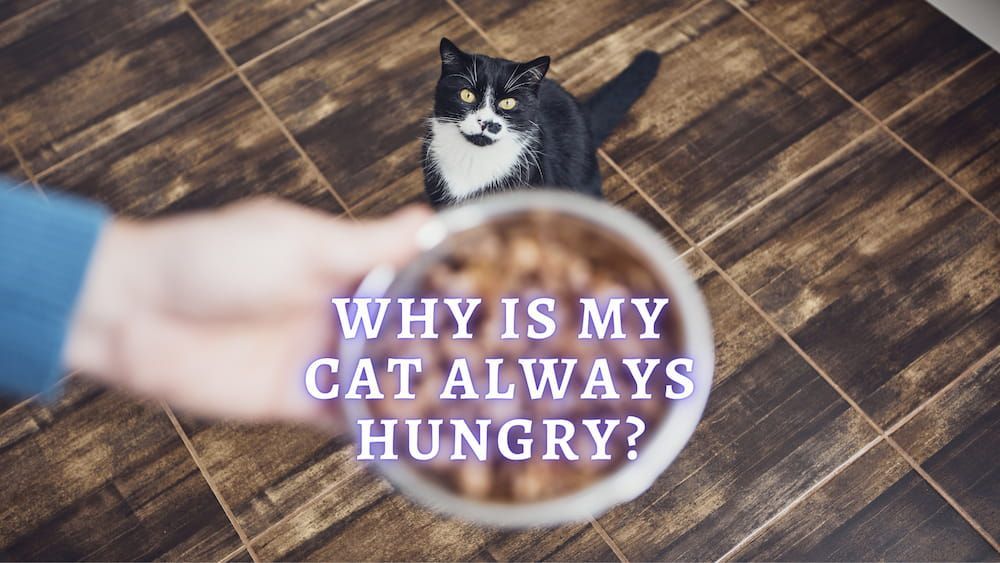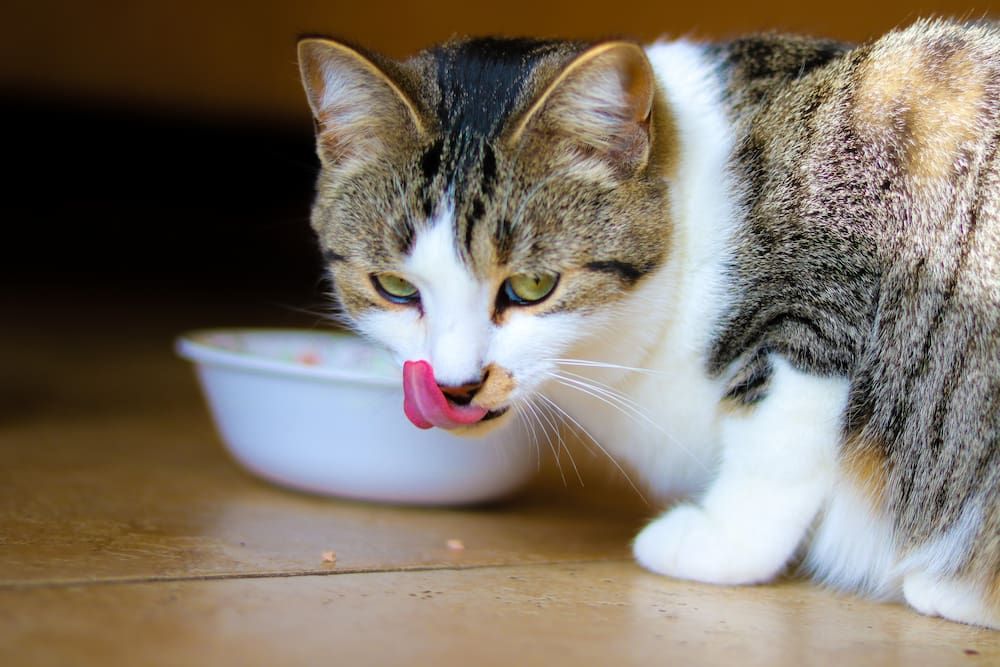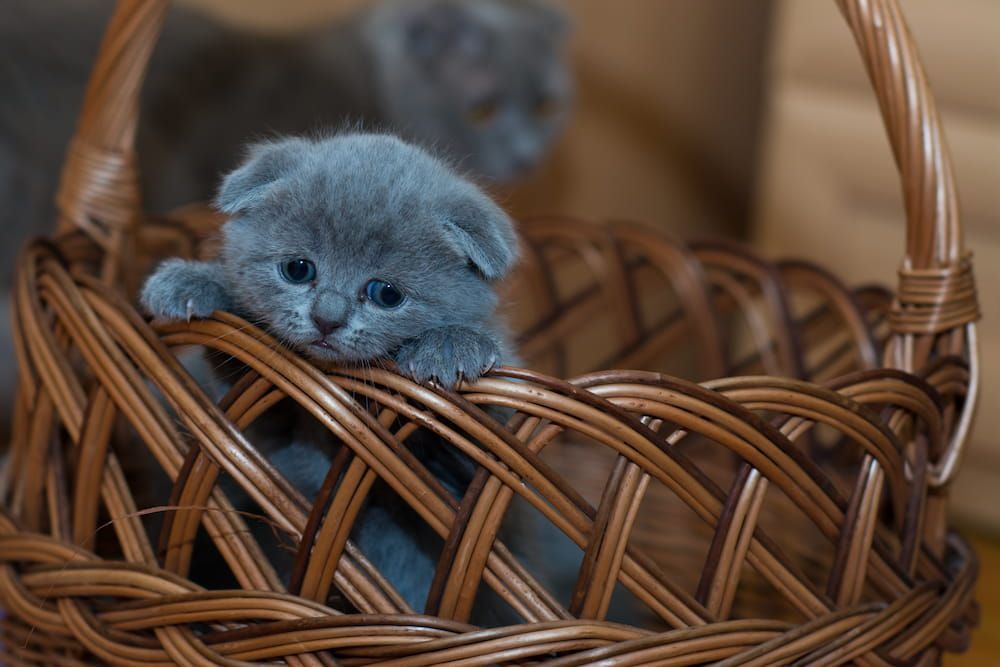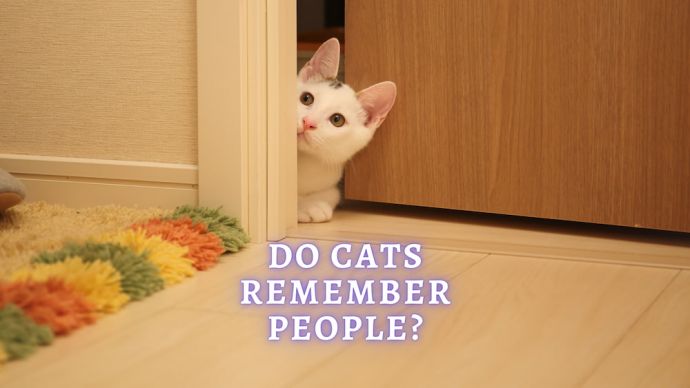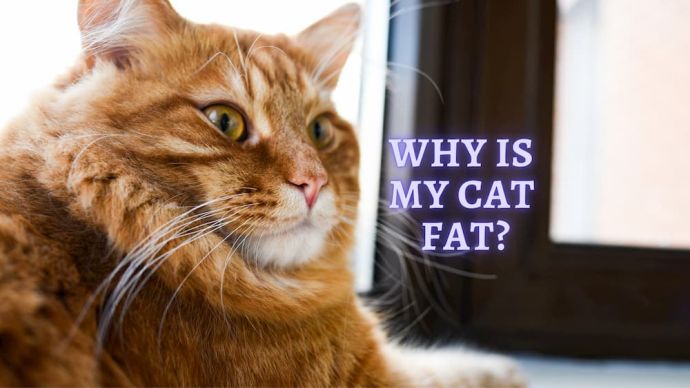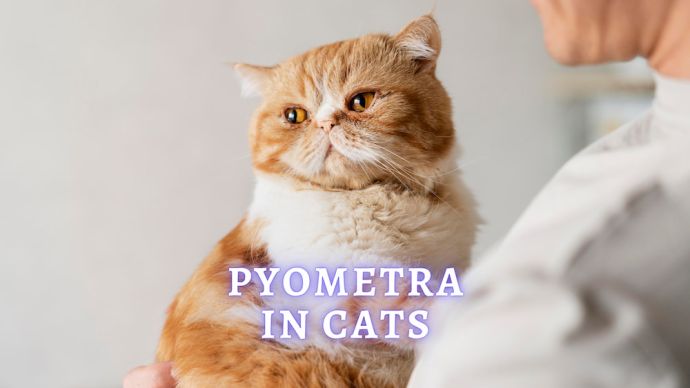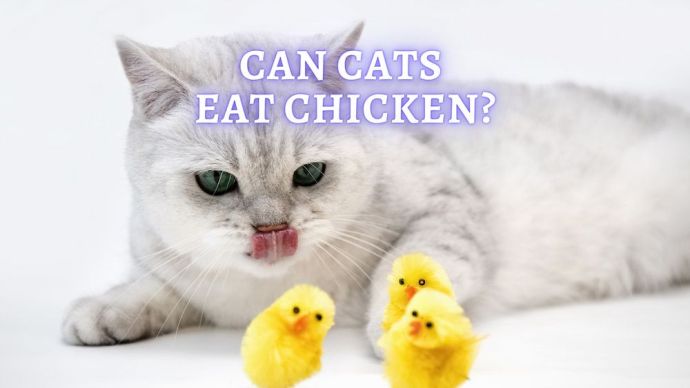Why Is My Cat Always Hungry? Vet-Approved Advice on Dealing With Hungry Cat
Written by:
Author: Vicki Smirnova
Vicki Smirnova is a professional writer and editor who adores animals and helps readers get along well with their pets. She has been working in digital media for more than 5 years and has great experience writing content about lifestyle, including pets. Vicki specializes in dog health and nutrition, cat feeding, dog training. She is an aquarium lover and is passionate to write about fish care at home. Also, Vicki headed several websites and worked as a news editor.
View all 244 articlesLearn about our editorial process and veterinary review board.
Reviewed by:
Veterinary review
by Dr. Linda Simon
Dr. Linda Simon is a veterinary surgeon working with seven years of experience. She is a fellow of the British Veterinary Association and specializing in animal medicine. Also, she has been the Woman magazine resident vet for the past two years and writes a regular column for them, focusing on pets and their health.
View all 30 articlesLearn about our veterinary review board
Viewed: 348
Updated on: 12/29/2022
The excessive appetite of a pet should not be ignored. This may be a signal of serious health problems or of a diet that is not nutritionally appropriate. However, more often, we are talking about medical issues. Ignoring the reasons why the cat is always hungry is not advised, and a quick vet check is the best step. This is especially true if the cat has other symptoms, such as weight loss or vomiting.
How much to feed a cat?
First, you need to determine the rate of frequency of feeding and enough food. Kittens need to eat frequently for normal growth and development. However, the volume of the portion should be small so that the little one has time to digest the food. An excess of food or insufficient calories or nutrients can lead to growth disturbances. Digestive disorders, obesity, and stunted growth are possible.
The frequency of feeding a kitten depends on its age. At weaning, this may be about 4 times a day. Gradually the owner should reduce the frequency of feedings to 2 times by 6 months. The volume of the daily serving of food depends on the age of the kitten, as well as on the food manufacturer. Each cat food has its own energy density (number of calories per gram of product), so the feeding rate can vary significantly. Owners can choose to feed wet food, dry food, or a mix of both.
If the pet’s diet consists of dry and wet food, then the portion size depends on the age of the pet and its activity levels. A properly selected diet should contain the right amount of animal protein, vitamins, and trace elements. An adult pet is fed once or twice a day. Some cats eat their meals quickly, while others graze throughout the day. It is not advised to continue to fill your cat’s bowl as they wish, as this would lead to obesity.
The diet of senior cats should support the normal functioning of all organs and systems and, at the same time, not cause digestive disorders. Ideally, we offer nutrient-dense and highly digestible ingredients. While it was once thought we should limit the amount of protein given, we now know that senior cats can eat relatively normal amounts of protein without adverse effects.
In terms of frequency and volume of servings, the diet of an elderly animal does not differ from that consumed at a young age.
RELATED: How Often To Feed a Kitten?
Why is my cat seemingly always hungry?
There are times when a cat asks for food even after he has received the necessary calories. Increased cat’s appetite is something an owner should keep an eye on – you should pay attention to the cat’s health of your pet and find out possible causes. Sometimes this will require a visit to the veterinarian.
Increased appetite in pets may be the result of forced starvation. Some veterinary procedures require the animal to limit food intake, which subsequently causes a natural state of hunger in the pet. Once feeding is allowed to be resumed, a hungry animal pounces on their food with gusto.
When an animal has not been starved, lets take a look at some of the other causes of excess hunger (polyphagia):
RELATED: How to tell if your Cat is Hungry?
Intestinal parasites
Worms have an extremely negative effect on the gastrointestinal tract of the animal. The cat begins to lose weight, although the food intake increases. Weight loss, nausea, vomiting, abdominal bloating, an unkempt coat, diarrhea, or constipation are some of the possible symptoms of helminthic infestation. In addition, a pet intestinal parasite individual may develop unusual food preferences. Gradually, the state of the animal becomes oppressed and lethargic. With the advanced form, helminths are noticeable in the vomit and feces. Antiparasitic drugs prescribed by a veterinarian after a confirmed diagnosis should resolve the issue. Owners are advised to de-worm their cat routinely, whether there is evidence of worms or not.
Problem with absorbing nutrients
Pets with chronic overeating often have digestive problems accompanied by vomiting, diarrhea, and insufficient digestion of food. These cats are generally underweight and unwell. With such a problem, it is necessary to contact a veterinarian to conduct the necessary research and prescribe medication and therapy, along with a prescribed diet.
Hormonal disorders
The two most common hormonal disorders in our pet cats are hyperthyroidism (an overactive thyroid) and diabetes. Both cause increased hunger and weight loss, and we may also notice excess thirst (particularly in diabetics). Those with hormonal disturbances are usually incredibly hungry.
Diagnostics usually consist of a physical exam, blood test, and urine test.
Daily medicine can treat hormonal disorders, and the prognosis is usually very good. There are other treatment options for hyperthyroid cats, including surgery and radiation.
Pregnancy in females need more food
All pregnant individuals eat a lot, approaching bowls even after feeding. During this period, a lot of nutrients are required for the normal development of newborns in the womb of a mother cat.
Pregnant cats should be fed kitten food, which is high in calories and calcium, and enriched with vitamins and trace elements are suitable. For pregnant and lactating cats, food should be available at all times.
It is worth mentioning, towards the end of the pregnancy, a cat may go off their food as their stomach size shrinks.
READ MORE: How To Take Care of a Pregnant Cat?
Intense cold
On cold days, the animal’s body spends more energy on its own heating. To replenish energy loss, the animal needs more food. In winter or autumn, the owner should increase the serving size or the nutritional value of the diet slightly – then, the cat will not often look into the bowl.
Taking medications that suppress satiety
Some medicines prescribed for treating diseases have side effects and can provoke an increased appetite in a pet. Steroids, for example, are known to increase appetite.
Reasons for Increased appetite in cats
The feeling of hunger in animals of any age is caused by physiological and psychological reasons, and it should not be ignored because it is often linked to disease. Psychological reasons for an increased appetite include the following:
Competition for food with other pets
Living in the same home with other pets makes you want to be at the food bowl first. Even a cat that has eaten a lot will not want to give the food left on the plate to its neighbor. He will try to be the first to be at the feeder and quickly eat not only his own but also someone else’s portion.
Lack of stimulation
Cats need constant mental and physical stimulation to feel calm and confident. If these needs are not met, cats may seek inspiration elsewhere, perhaps eating to excess. Some cats seek human interaction by constantly asking for food. This is not only an opportunity for him to attract the owner but also a way to cope with stress.
Fear of hunger in street animals
Homeless animals survive in challenging conditions, so they always search for food. Even once in a family of loving owners, former street individuals do not immediately get rid of an old cat’s eating habits. Many are ‘programmed’ to always eat any food on offer, even if they do not feel hungry.
These cats are afraid of starving and have a strong self-preservation instinct, and they fill up as much as they can to eat for the future. To correct eating behavior in this case, it is advised you consult with a feline behaviorist.
When is it time to see a vet?
There are situations when the owner should not hesitate to visit the veterinary clinic. Sometimes a cat constantly asks for food because it suffers from serious ailments, and hunger is just one of the symptoms. Other warning signs include:
- vomiting
- fever
- diarrhea
- weight loss
- lethargy
- an unkempt coat
A sick pet often seeks solitude and may be less social than usual. Sometimes a suffering animal cannot stand being around people or other pets and will try their best to hide away. Any personality change should be noted.
How do I know my cat is hungry rather than bored?
Cats experience a feeling of satiety after eating; otherwise, they would eat constantly. If a cat reacts to the rustling of food bags or is always happy to accept a treat, it does not necessarily mean they are hungry. A hungry cat will constantly pester their owner for food and is usually happy to accept anything (not just yummy snacks!).
The feeling of satiety can vary: some people eat when hungry, others at the first opportunity. Just as people, having had enough of dinner, do not refuse ice cream, some cats will always find a place for “dessert”.
RELATED: How to tell if your Cat is Bored?
To prevent eating behavior problems, you should follow these rules:
- Visit the veterinarian periodically. This will make sure that the cat is healthy, as well as prevent the occurrence of diseases or recognize them at an early stage. A general rule of thumb is an annual check up for an adult cat and six monthly checks for seniors.
- Do not starve the cat or put them on a cat’s diet without first consulting with a vet.
- Do not overfeed the animal; once the correct portion has been eaten, do not add more food until the next meal time.
- Make a feeding schedule and stick to it, unless you are choosing to feed ad lib.
- Do not indulge the animal’s whims by giving the cat food at its first meow. This only encourages begging and over-eating.
- Make sure you are feeding a quality diet aimed at the right age group for your cat.
- Prevent boredom by enriching your cat’s life with lots of games, interactive toys, and exercise.
If your cat is asking for a treat or food, but is not due any more, offer them something else. This may mean quick game or some strokes. Our knee-jerk reaction should not be to provide food, as this creates bad habits.
While your cat may look longingly at you while you ear or open a food package, they may not actually be hungry. Rather, they are hoping they get something extra tasty. Treats are fine now and then, but should not form more than 10% of your cat’s daily calorie intake.
Keep track of your cat’s weight and body condition score. If all is well here, you can be assured they are being fed the right amount. So even if they ask for more food, stick to your guns and hold off until the next feeding time.
FAQ
How do I stop my cat from being hungry all the time?
A physically and mentally healthy cat will not constantly beg for food and sit around a bowl. A balanced menu will provide enough strength and energy for an active life. If your cat seems constantly hungry despite consuming enough calories, consult with your vet.
Why is my cat always begging for food?
There are times when a cat asks for food even after he has eaten plenty. Increased appetite and non-stop begging can be due to a physical or behavioral disorder. Organize a vet consultation, to get to the bottom of this.
Why is my cat so food obsessed?
For some cats, this will just be how they are programmed due to their genes. For others, it may be a result of their early life, especially if they did not have a good start in life.
Excess hunger can also be a sign of a health condition or a behavioral disorder, so is not something to be ignored.
What to feed cat that is always hungry?
Pay attention to your pet’s diet. A properly selected diet should contain the right amount of animal protein, vitamins and trace elements. Opt for a ‘satiety diet’ for those who have big appetites, especially if they are over-weight.
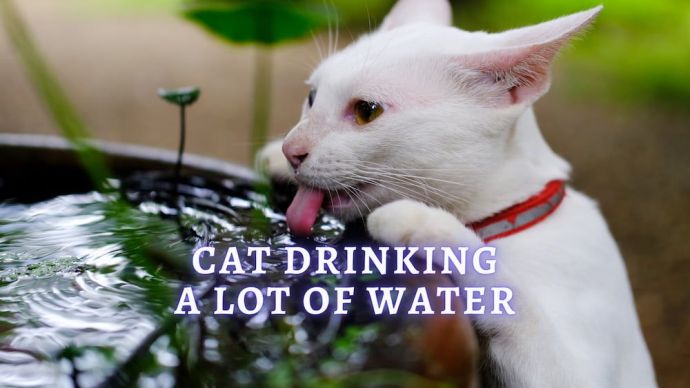 Cat Care Cat Drinking a Lot of Water: Health and Behavior Reasons Why Your Cat Drinks So Much
Cat Care Cat Drinking a Lot of Water: Health and Behavior Reasons Why Your Cat Drinks So Much - 430
- 0
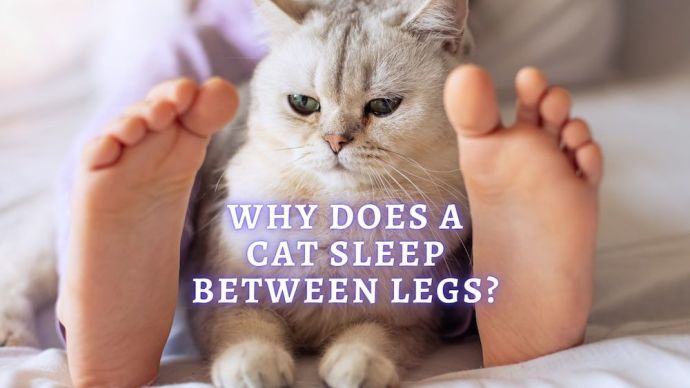 Cat Care Why Does My Cat Sleep Between My Legs? 7 Reasons Why Do Cats Sleep Between Legs
Cat Care Why Does My Cat Sleep Between My Legs? 7 Reasons Why Do Cats Sleep Between Legs - 232
- 0
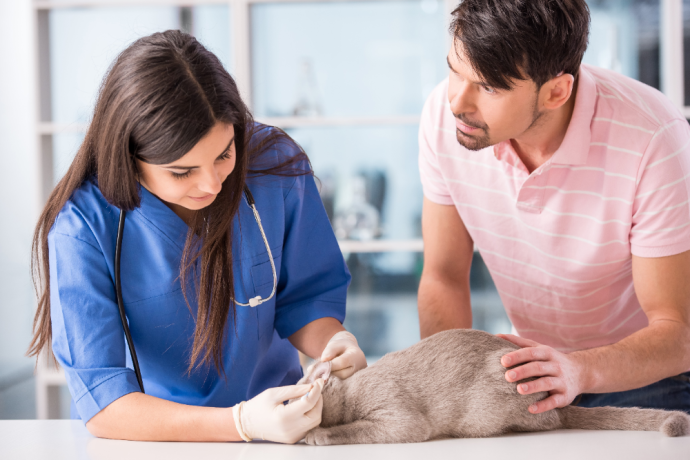 Cat Veterinary Tips Cat Fleas and Ticks: How to get rid of Fleas on Cats? (Vet Advice)
Cat Veterinary Tips Cat Fleas and Ticks: How to get rid of Fleas on Cats? (Vet Advice) - 185
- 0
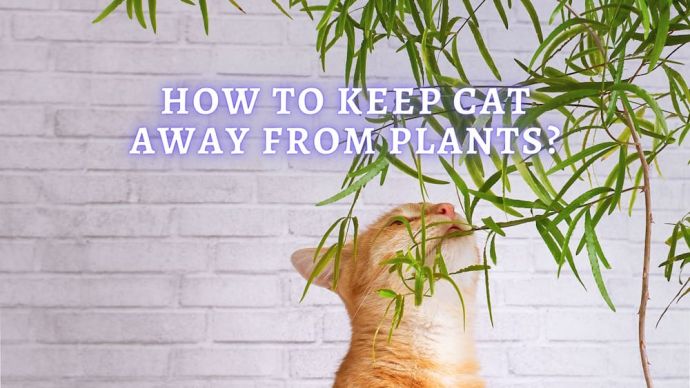 Cat Care How to Keep Cats out of Plants? How to Get Your Cat to Not Eat Plants?
Cat Care How to Keep Cats out of Plants? How to Get Your Cat to Not Eat Plants? - 420
- 0
 Cat Care Why Does My Cat Attack My Legs? 10 Reasons Why and What To Do About It (Vet-Approved Advice)
Cat Care Why Does My Cat Attack My Legs? 10 Reasons Why and What To Do About It (Vet-Approved Advice) - 46013
- 21
 Cat Veterinary Tips Cat Stomach Gurgling: Vet Advice on Why is Your Cat Stomach Gurgling?
Cat Veterinary Tips Cat Stomach Gurgling: Vet Advice on Why is Your Cat Stomach Gurgling? - 36469
- 4
 Cat Veterinary Tips My Cat Lost its Voice: Can Cats get Laryngitis? (Vet Advice)
Cat Veterinary Tips My Cat Lost its Voice: Can Cats get Laryngitis? (Vet Advice) - 23554
- 13









